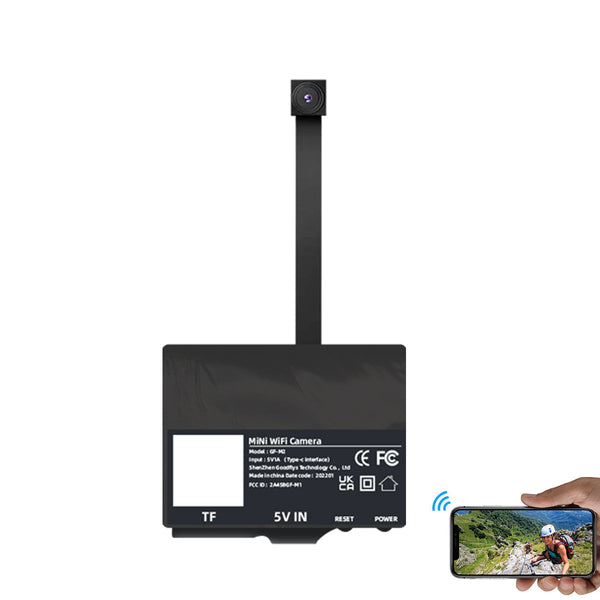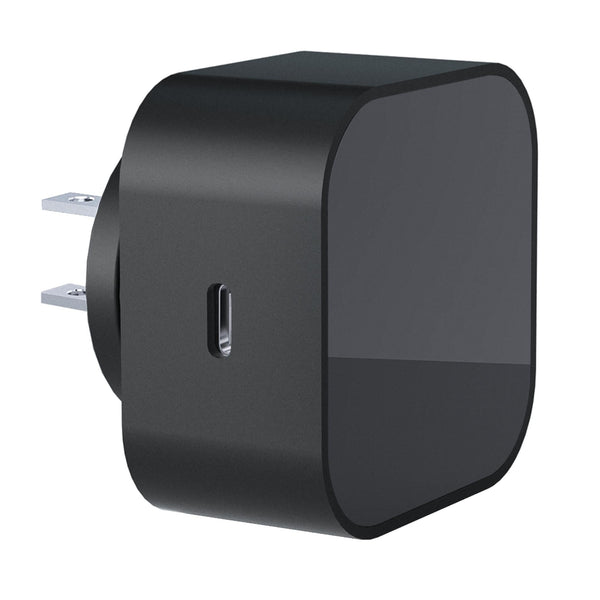Home Security Cameras: Wireless vs Wired

Enhancing your family's safety can be achieved by investing in a surveillance camera system. The choice typically boils down to wired or wireless options, based on your security needs.
Both camera types allow you to monitor your property in your absence. While you're at home, they offer peace of mind as an extra pair of eyes.
Since choosing between wired and wireless can be challenging, we're here to clarify their key features, enabling an informed decision.
Within a few minutes, you should discern which option will best complement your home security system.
Wired Security Camera

A wired security camera transmits video and audio data to a central hub over a cable, often referred to as DVRs (digital video recorders).
You can connect between 4 and 16 cameras to the system, recording continuously and storing data securely on the hub or network.
In DVR setups, cameras get power via coaxial cables. Newer NVR systems use PoE cables to power cameras through the hub.
View the live feed on your smartphone or connect a monitor for review.
Pros and Cons of Wired Security Camera
Pros
- Highly reliable with minimal interference
- More secure, less susceptible to wireless hacking
- Stable and clear audio and video signals
- Higher resolution cameras offer a wider field of view
- Lower lag, even in live view
Cons
- Professional installation required due to extensive wiring
- Higher installation costs
- Wires need to be concealed within walls and ceilings
- Remote viewing applications generally lack user-friendliness
- Systems aren’t portable for easy relocation
- Camera count limited by DVR port availability
Advantages of Wired Security Camera
Wired spy cameras provide superior reliability, eliminating worries about Wi-Fi drops or battery life.
Keeping the system offline secures data from digital snooping.
Wired cameras offer stable video quality without bandwidth issues.
Cover more area with wired security cameras than wireless options.
Disadvantages of Wired Security Camera
While equipment costs less for wired cameras, installation is pricier.
Positioning cameras widely requires extensive wiring.
Cabling demands professional installation through walls and ceilings.
Software for wired cameras can be less advanced than for wireless.
You might need a monitor for footage playback.
Wireless Security Camera

Wireless security systems transmit data via Wi-Fi but need power cables unless battery or solar-powered.
Footage is stored on a cloud server, with some models featuring micro SD storage.
Access footage live or review it later.
Equipped with motion detection, wireless cameras record when movement is detected.
Features often include night vision and two-way audio with built-in mic and speaker.
Pros and Cons of Wireless Security Camera
Pros
- Quick, easy installation suitable for DIY enthusiasts
- Relocation is simple, ideal for renters
- No wires to cut, preventing tampering
- Cloud storage allows easy live viewing
- Easy system expansion with additional cameras
Cons
- Power source still requires wiring
- Susceptible to network hacking
- Video quality dependent on Wi-Fi
- Interference from other signals can disrupt connection
- Signal limited by Wi-Fi range
- Lower image quality
Advantages of Wireless Security Camera
Wireless cameras are simpler and faster to deploy. Just attach, power, and connect to Wi-Fi.
Freedom from wiring facilitates easy relocation.
User-friendly, view footage via smartphone or tablet, with longer cloud storage.
No wires to tamper with means greater security.
Operating range up to 500 feet with fewer interference issues.
Disadvantages of Wireless Security Camera
Wireless camera performance hinges on the Wi-Fi connection.
Signal fluctuations or distant routers cause instability and higher lag.
Materials such as brick or concrete can interrupt signals, unlike less obtrusive drywall or wooden studs.
Video quality varies with bandwidth and interference from nearby networks.
Internet connectivity of wireless cameras increases hacking risks.
Time to Make Your Choice
With a clearer understanding of the differences between wired and wireless security cameras, it’s time to decide which suits your needs and place your order.
The Spy Store provides a variety of equipment to ensure the safety of your loved ones and assets. Shipped from within the UK, from our Manchester warehouse! Free Expedited Shipping within UK for orders over £29. Ensure your choice aligns with legal regulations in your area.







